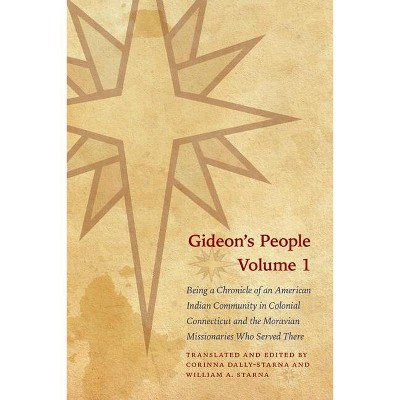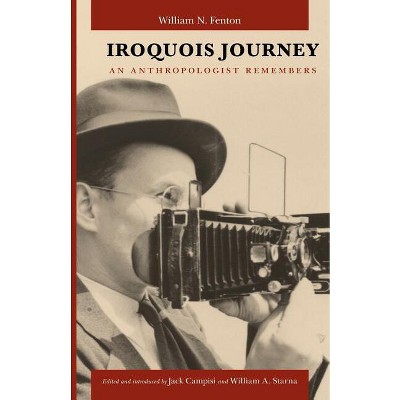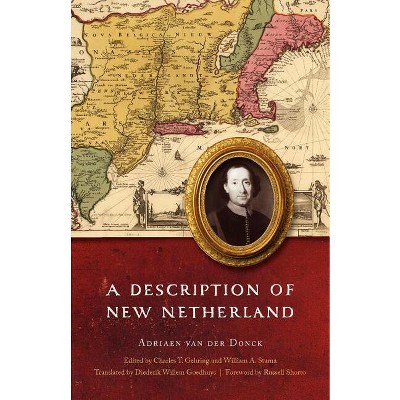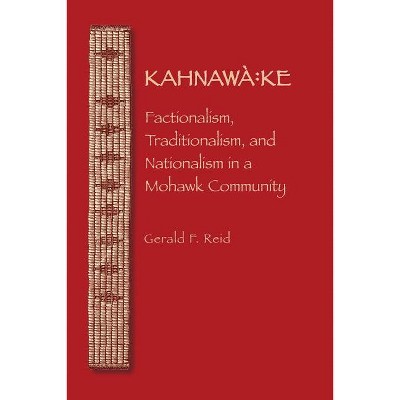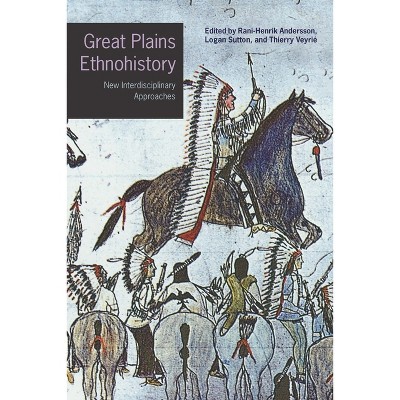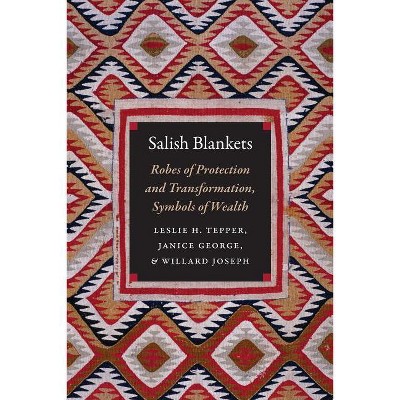Sponsored

The Texture of Contact - (Iroquoians and Their World) by David L Preston (Hardcover)
In Stock
Sponsored
About this item
Highlights
- The Texture of Contact is a landmark study of Iroquois and European communities and coexistence in eastern North America before the American Revolution.
- About the Author: David L. Preston is an assistant professor of history at the Citadel.
- 408 Pages
- Social Science, Ethnic Studies
- Series Name: Iroquoians and Their World
Description
Book Synopsis
The Texture of Contact is a landmark study of Iroquois and European communities and coexistence in eastern North America before the American Revolution. David L. Preston details the ways in which European and Iroquois settlers on the frontiers creatively adapted to each other's presence, weaving webs of mutually beneficial social, economic, and religious relationships that sustained the peace for most of the eighteenth century. Drawing on a wealth of previously unexamined archival research, Preston describes everyday encounters between Europeans and Indians along the frontiers of the Iroquois Confederacy in the St. Lawrence, Mohawk, Susquehanna, and Ohio valleys. Homesteads, taverns, gristmills, churches, and markets were frequent sites of intercultural exchange and negotiation. Complex diplomatic and trading relationships developed as a result of European and Iroquois settlers bartering material goods. Innovative land-sharing arrangements included the common practice of Euroamerican farmers living as tenants of the Mohawks, sometimes for decades. This study reveals that the everyday lives of Indians and Europeans were far more complex and harmonious than past histories have suggested. Preston's nuanced comparisons between various settlements also reveal the reasons why peace endured in the Mohawk and St. Lawrence valleys while warfare erupted in the Susquehanna and Ohio valleys. One of the most comprehensive studies of eighteenth-century Iroquois history, The Texture of Contact broadens our understanding of eastern North America's frontiers and the key role that the Iroquois played in shaping that world.Review Quotes
"In a fascinating work based on primary source research, Citadel professor David Preston takes another look at history's preconceived notions regarding settler and Indian interactions in the colonial period."--Kelly Anderson, Senator John Heinz History Center-- (12/10/2011 12:00:00 AM)
"Preston has created an original and stimulating narrative by engaging with frontier peoples on their own lands and on their own terms."--Christopher Bilodeau, Ethnohistory
"Preston is an ambitious and stimulating writer, and his book is worthy of use in the graduate or advanced undergraduate classroom."--Gregory Evans Dowd, American Historical Review
"Students of Iroquois culture and backcountry history will be surprised and challenged by this book, which shows in a new way that conflict was never inevitable in the backcountry. Even on the eve of the Revolution, there was still the possibility of Indian-European amity in the Iroquoian borderlands."--Daniel Ingram, Pennsylvania Magazine of History and Biography
"This book is a substantive and welcome addition to the scholarship on eighteenth-century Native-settler relations. . . . Preston's engaging writing style makes the book viable for assignment in upper-level undergraduate courses and graduate seminars, and all scholars in the field will need to grapple with the implications of his significant findings regarding the importance of local, "everyday," face-to-face interactions across cultural boundaries in early America."--Jon Parmenter, William and Mary Quarterly
"The Texture of Contact deserves to be recognized for what it is, a major contribution to the ever growing body of academic studies about Indian-white interactions, both peaceful and bloody, in colonial North America. Preston's presentation represents a sophisticated analysis that moves significantly beyond currently fashionable explanations about Indian-white interactions--and the reasons why harmony finally gave way to a bloody history of violence and the dispossession of Native Americans from their homelands."--James Kirby Martin, Pennsylvania History
-- (10/11/2012 12:00:00 AM)
About the Author
David L. Preston is an assistant professor of history at the Citadel.






